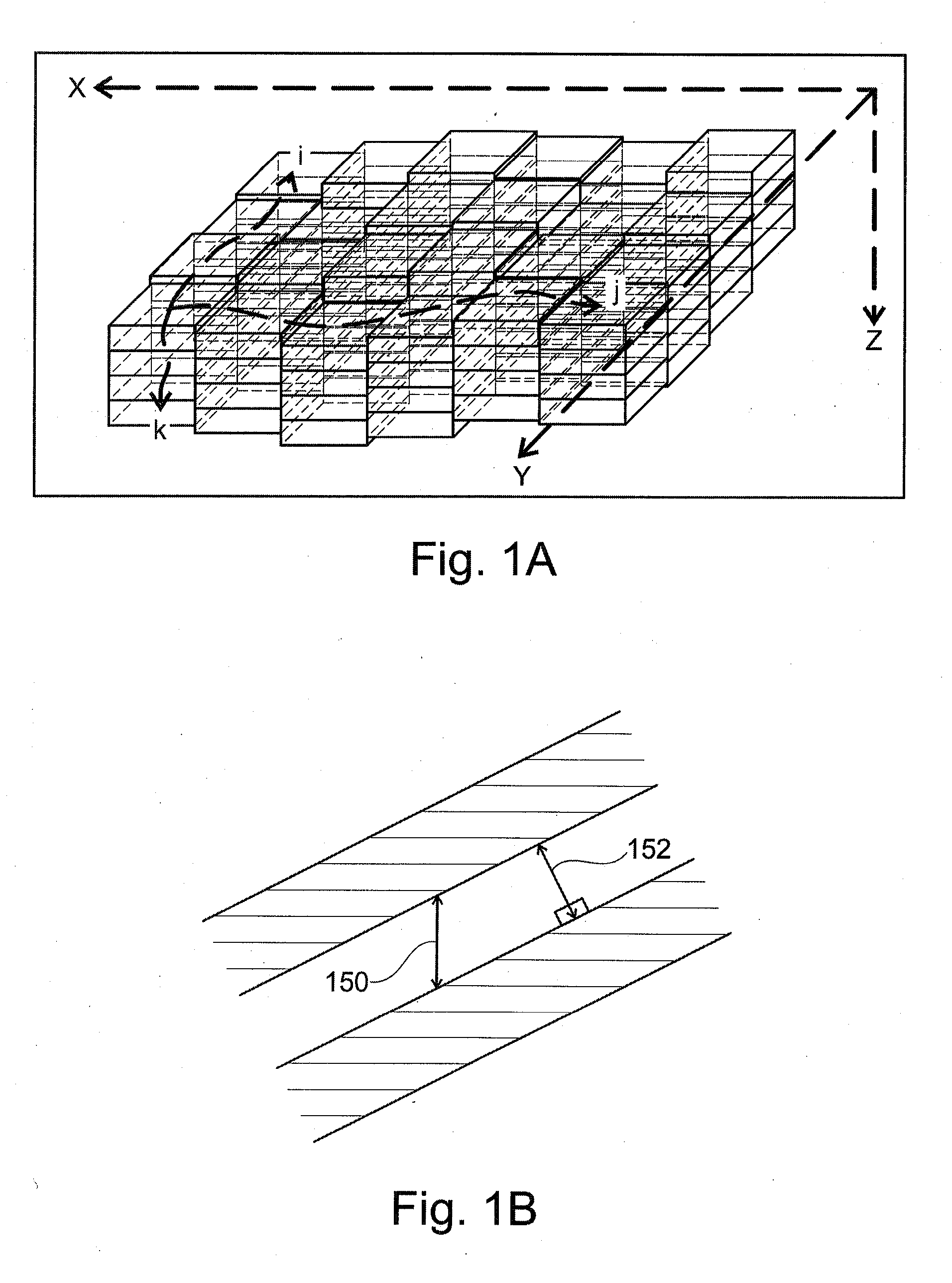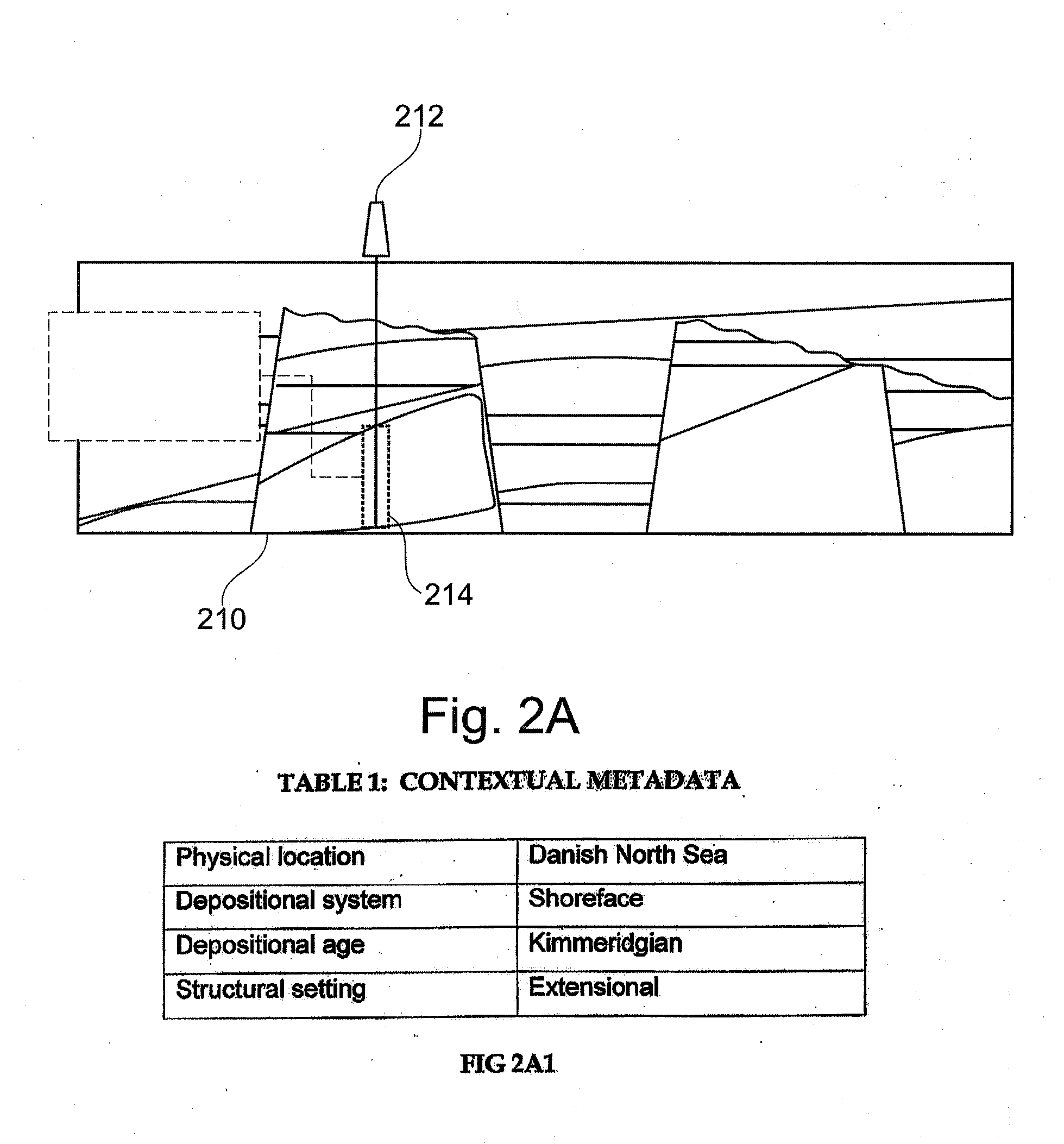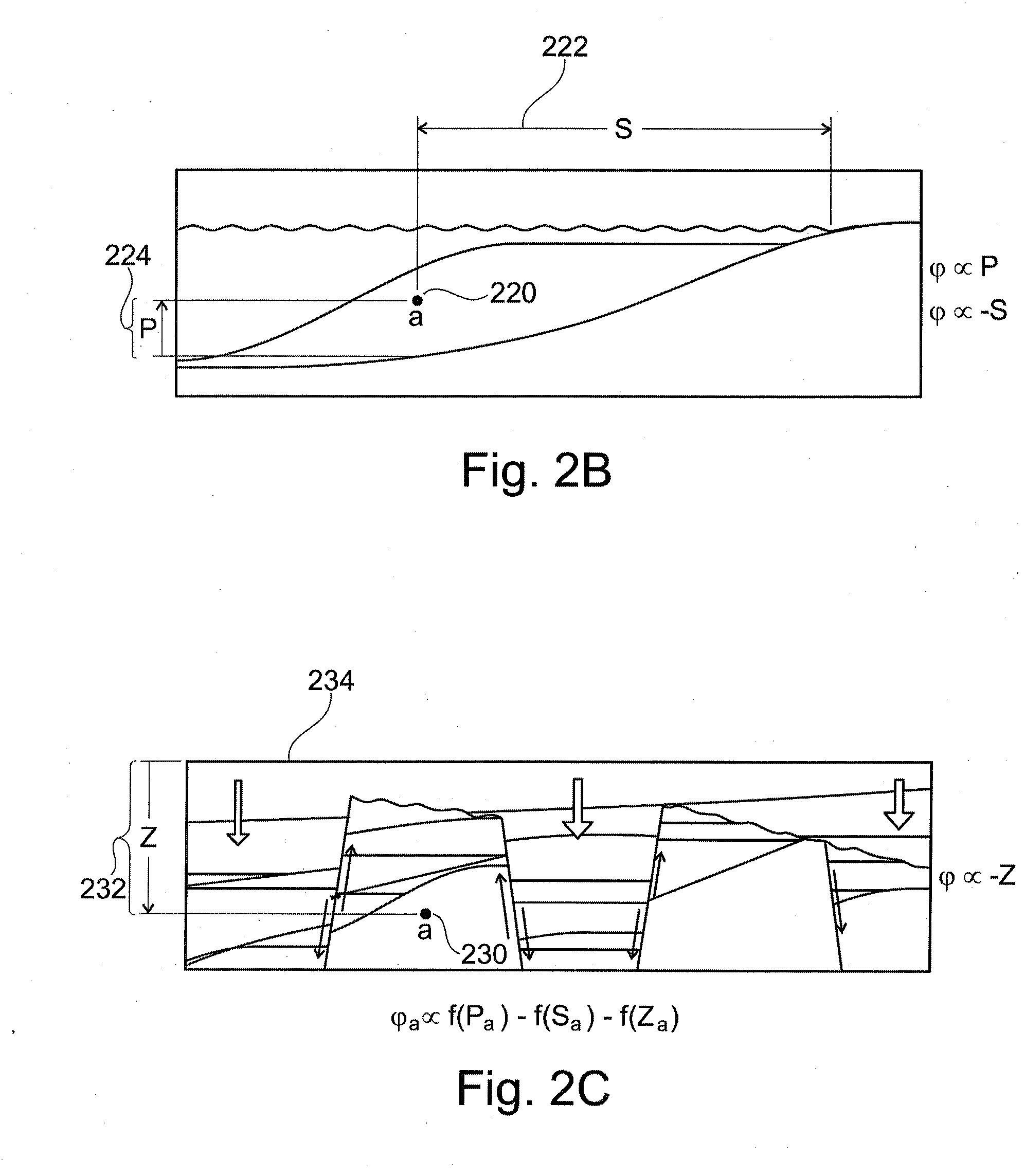Geological Prediction Technology
a technology of geological prediction and prediction algorithm, applied in the field of geological prediction technology, can solve the problems of difficult dissection, insufficient spatial sampling of input data, complex prediction made by geological algorithms, etc., and achieve the effect of improving the prediction of the parameter of the earth's interior and efficient and accurate modelling
- Summary
- Abstract
- Description
- Claims
- Application Information
AI Technical Summary
Benefits of technology
Problems solved by technology
Method used
Image
Examples
Embodiment Construction
[0051]FIG. 1A schematically illustrates a three dimensional model of a volume of the Earth for use in modelling of, for example, an oil reservoir. In FIG. 1A, the modelled portion of the Earth's volume can be represented in terms of the Cartesian coordinates represented an x-axis 102, a y-axis 104 and a z-axis 106. The Cartesian coordinates, which give a position (x, y, z) in the grid represent the true spatial location at the time that one or more geological parameters are measured.
[0052]The Earth volume 100 can alternatively be referenced via a set of grid indices along an i-trajectory 110, a j-trajectory 112 and a k-trajectory 114, which give alternative coordinates (i, j, k) for a given point in space. As shown in FIG. 1, the i, j, and k trajectories do not necessarily follow any straight vector in Cartesian space, but instead a references relative to a matrix position within the geological model, itself. Likewise, other alternative vectors can be defined, such as in FIG. 1B, wh...
PUM
 Login to View More
Login to View More Abstract
Description
Claims
Application Information
 Login to View More
Login to View More - R&D
- Intellectual Property
- Life Sciences
- Materials
- Tech Scout
- Unparalleled Data Quality
- Higher Quality Content
- 60% Fewer Hallucinations
Browse by: Latest US Patents, China's latest patents, Technical Efficacy Thesaurus, Application Domain, Technology Topic, Popular Technical Reports.
© 2025 PatSnap. All rights reserved.Legal|Privacy policy|Modern Slavery Act Transparency Statement|Sitemap|About US| Contact US: help@patsnap.com



